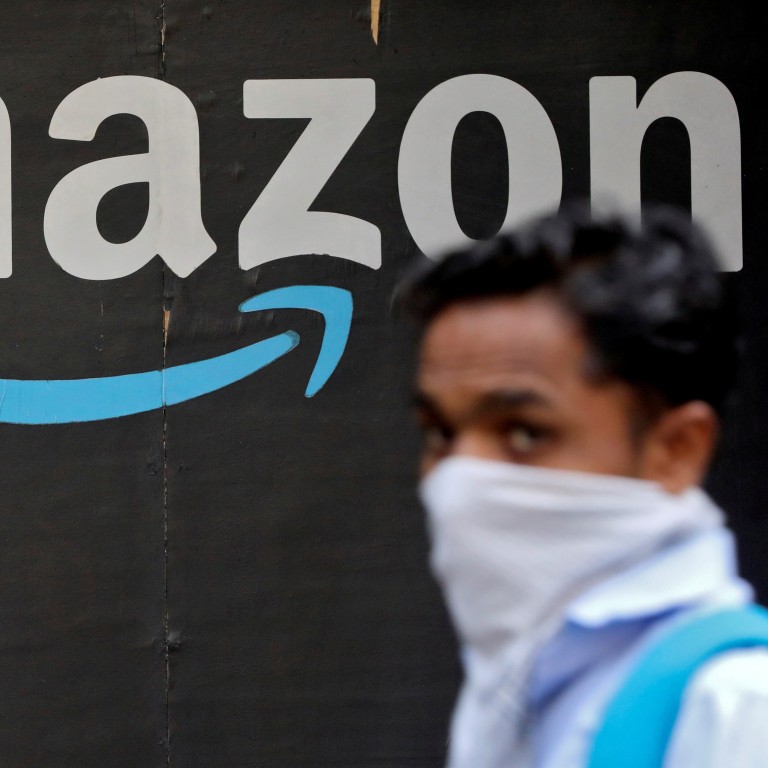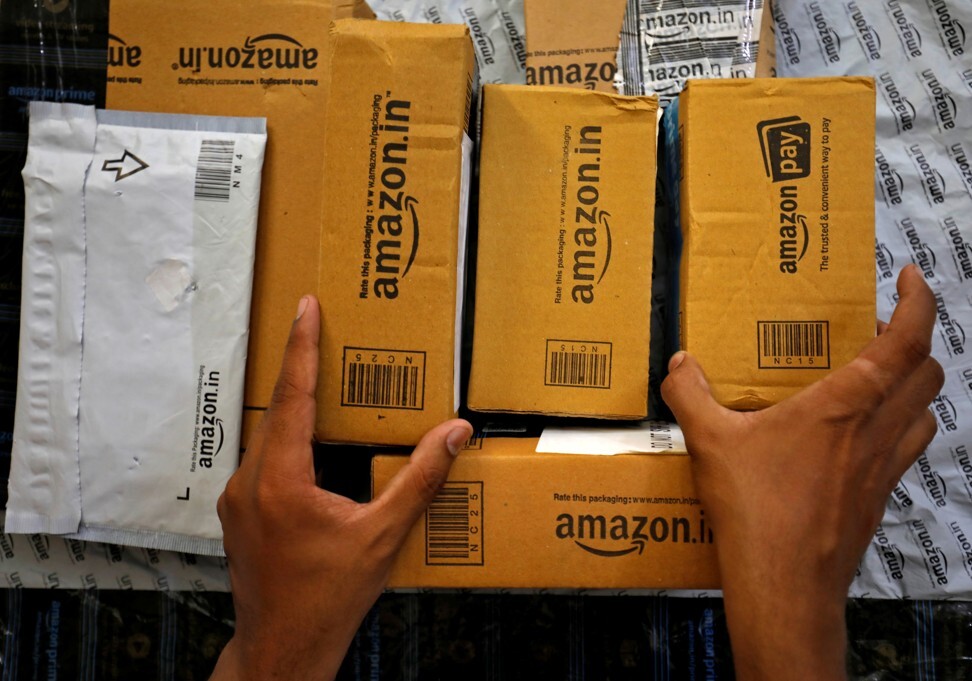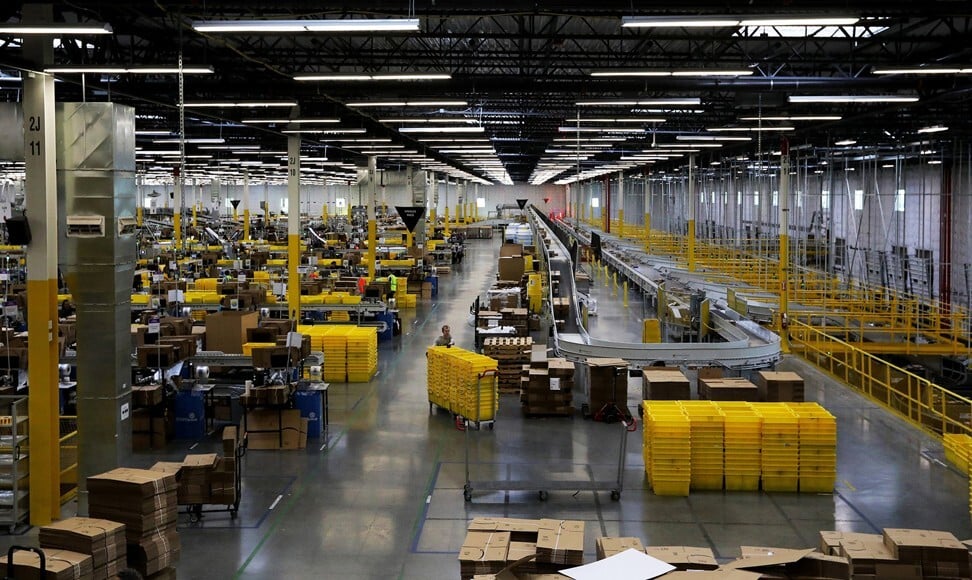
Fate of ‘Made in China, sold on Amazon’ products in doubt as fake review crackdown continues
- Since early May, product listings from some of the biggest Chinese electronic gadget vendors have vanished from Amazon’s online marketplace
- The share of China-based sellers on Amazon’s US site has surged to 63 per cent this year
Still, Zhang says it is hard to abide by one specific rule: real reviews only. Zhang understands the risk of not following the rule, but believes it is the only way to jump-start overseas sales for his online store.
“On average, only one in 15 people leave a review,” he said. “Some stores pay a lot of people to leave positive reviews. I’m thinking of asking some friends to write a few reviews for me.”
Amazon has doubled down on efforts against fake reviews, which has become common on e-commerce sites around the world, by targeting the most egregious offenders on its platform.

Since early May, product listings from some of the biggest Chinese electronic gadget sellers have vanished from Amazon’s online marketplace.
“Recently, after a thorough investigation, we suspended a few well-known selling accounts because we found they were violating our clear and long-standing policy prohibiting reviews abuse,” said Dharmesh Mehta, vice-president of worldwide customer trust and partner support at Amazon, in a letter to the platform’s online vendors last week.
“Our actions generated a vocal response and we wanted to take a moment to be clear – the rules are the same for every seller, regardless of their size or location,” Mehta said, without mentioning the names of the merchants.
‘Made in China, sold on Amazon’ gadgets vanish from site
Amazon has a “zero-tolerance policy” towards violations, including asking a friend to leave a review and offering incentives to post positive reviews, according to the company.
While Amazon has been known to regularly suspend merchants for fake reviews and other violations, its latest action has garnered wide public attention in China because of the vendors involved.
“Amazon shuts down thousands of stores every single day for manipulation of the review system,” said Zack Franklin, a Shenzhen-based Amazon consultant for merchants. “The reason it‘s so notable this time is because the stores that they shut down are so big.”

01:35
Bowls for spit marketed as fruit baskets on Amazon for up to 20 times the local price
Electronics vendor Aukey was one of those affected by Amazon’s latest crackdown. The Shenzhen-based outfit generated more than three-quarters of its revenue from Amazon in the first quarter of 2018 and 2019, according to a prospectus it filed in 2019. The vendor raked in 5.1 billion yuan (US$793 million) in sales in 2018, up from 3.7 billion yuan in 2017.
Mpow, the main Amazon electronics store run by TikTok owner ByteDance and Xiaomi-backed consumer product firm Patozon, was also affected by the crackdown. Mpow recorded 2 billion yuan from exports in the first half of 2020, according to a financial statement released by the company’s previous owner, Shenzhen-listed Global Top E-commerce.
Neither Aukey nor Mpow have been accused of fraud.
Near-expired food sales booming in China amid anti-waste drive
“The main reason Amazon specifically targeted the biggest Chinese accounts is to send a very strong signal to sellers,” Franklin said. He indicated that Amazon does not care about a vendor’s size, but wants this message known: “If you are breaking the rules, we will shut you down.”
Franklin, however, said faking reviews is not a unique practice by Chinese online vendors.
“This is the problem every seller is facing, and it‘s because only one or two per cent of people leave reviews,” he said. “How are they supposed to compete with very long-established products?”
But in China, “they usually just have a lot more money and resources to put into this [practice]”, he said.
In recent years, a growing number of Chinese merchants have turned to large international e-commerce platforms, including eBay and Amazon, to reach consumers beyond their home market.

China-based sellers represented 75 per cent of all new merchants on Amazon in January, according to a report by consultancy Marketplace Pulse. The share of China-based sellers on Amazon’s US site has surged to 63 per cent this year, up from 28 per cent in 2019.
“Some vendors opt for foreign marketplaces because of fierce, money-burning domestic competition,” said Ivan Platonov, research manager at EqualOcean, a China-focused investment research firm. “Others include experienced exporters willing to do away with middlemen by marketing their stuff directly to foreign consumers.”
That situation has created what Amazon consultant Franklin described as “a cultural mismatch about what is considered ethical”.
“There are more Chinese sellers [on Amazon] than ever before, and they‘re used to Taobao and JD where it is easy to fake reviews on these platforms,” Franklin said. “When they apply it to Amazon, they get in trouble.”
Despite Amazon’s fake review crackdown, there are some small vendors who choose to continue with the practice to stay competitive.
“I admit that I pay for some reviews, but that’s because my competitors are doing the same. I have to do it, too,” one seller posted in a discussion thread of an online merchant community about Amazon’s fake review crackdown. “If there’s a healthy environment for competition, who would want all these deceptions?”


